Well every now and then i like to woo you with some interesting shit ........good /bad/shitty/interesting/nonsense/funny /whatever i can muster up for your imagination ..........

Interesting facts you’ll want to share with everyone
Random fun facts catch us off guard in the best possible way. They’re unexpected or unusual bits of knowledge from the worlds of science, history, and pop culture that delight and entertain us—and anyone we share them with. But these interesting facts aren’t just amusing pieces of information that will make you a whiz at answering trivia questions: They’re legitimately fascinating, and once you get started, you’ll want to keep reading until your curiosity is satisfied.
Whether you’re into weird facts that almost don’t sound true (but totally are), random trivia, science trivia, animal trivia, movie trivia, and/or book trivia, you’ll find plenty of new information here. And if you’re looking for trivia questions for kids to entertain them during a family dinner or a long road trip, we’ve got plenty of those, too!
Get Reader’s Digest‘s Read Up newsletter for humor, cleaning, travel, tech and fun facts all week long.
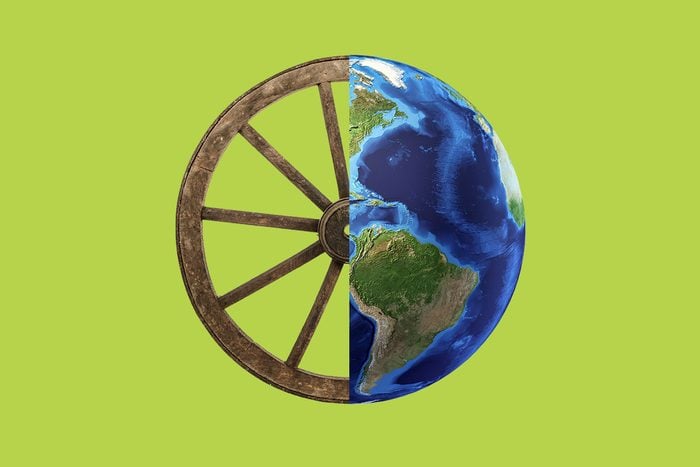
Fact: The world’s oldest wooden wheel has been around for more than 5,000 years
It was found in 2002, approximately 12 miles south of Ljubljana, the capital of Slovenia, and is now housed in the city’s museum. Radiocarbon dating was used to determine the wheel’s age, which is somewhere between 5,100 and 5,350 years old. Closer to home, these are the oldest tourist attractions in every state.
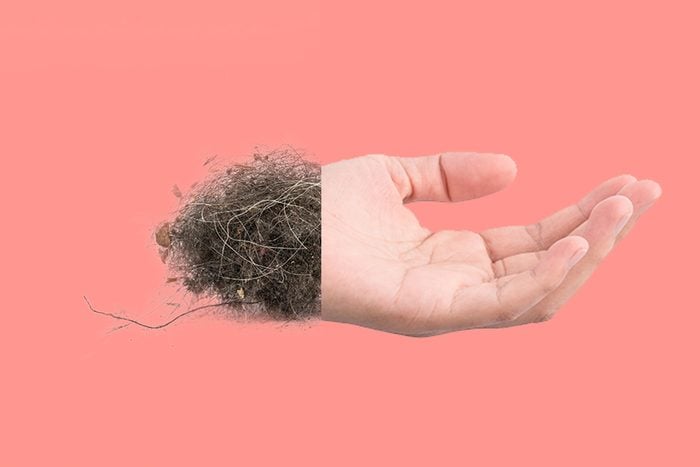
Fact: Dead skin cells are a main ingredient in household dust
Here’s an interesting science fact for you: According to researchers at Imperial College London, humans shed around 200 million skin cells each hour—and they have to go somewhere when we’re indoors. If the idea of skin dust isn’t sitting well with you, you should know that a report from the American Chemical Society found that a skin oil called squalene naturally helps reduce indoor ozone levels by up to 15 percent.

Fact: Sudan has more pyramids than any country in the world
Not only does Sudan have more pyramids than Egypt, but the numbers aren’t even close. While 138 pyramids have been discovered in Egypt, Sudan boasts around 255. Next, see if you can answer these real Jeopardy! questions about geography.
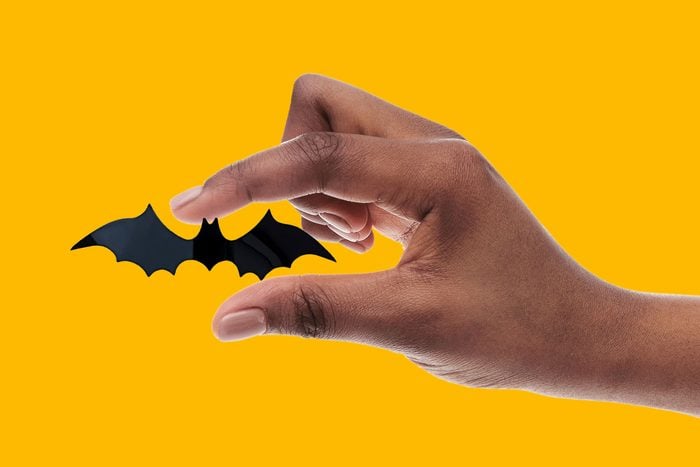
Fact: The bumblebee bat is the world’s smallest mammal
Weighing in at 0.05 to 0.07 ounces, with a head-to-body length of 1.14 to 1.29 inches and a wingspan of 5.1 to 5.7 inches, the bumblebee bat—also known as Kitti’s hog-nosed bat—is the smallest mammal in the world, according to the Guinness Book of World Records. To see this tiny bat for yourself, you’d have to visit one of a select few limestone caves on the Khwae Noi River in Kanchanaburi Province of southwest Thailand. Here are more of Earth’s tiniest creatures that play a big role in the environment.
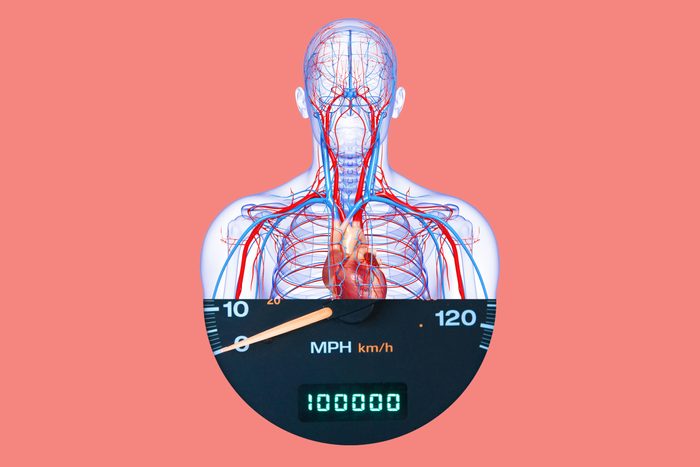
Fact: The circulatory system is more than 60,000 miles long
If a child’s entire circulatory system—we’re talking veins, arteries, and capillaries—were laid out flat, it would stretch for more than 60,000 miles, according to the Franklin Institute. By the time we reach adulthood, our bodies have become home to approximately 100,000 miles of blood vessels. That’s just one of the mind-blowing facts that sound made up (but aren’t).
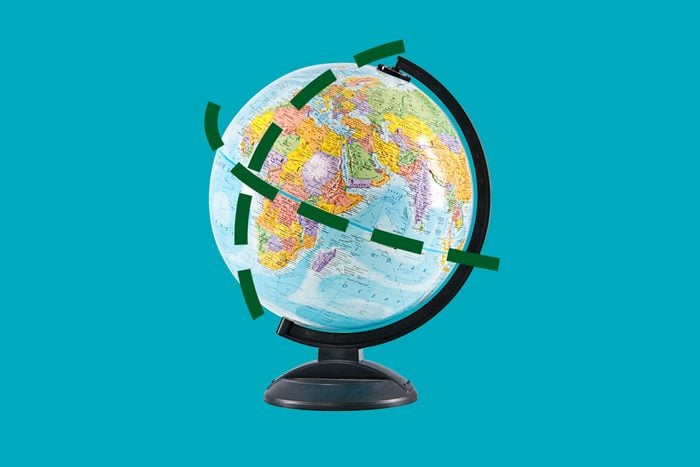
Fact: There are parts of Africa in all four hemispheres
For people whose education was largely focused on the Western world, it may be surprising to find out exactly how huge the continent of Africa is. For instance, it spans all four hemispheres and covers nearly 12 million square miles. Here’s another interesting fact: Do you know the only city that straddles two continents?

Fact: The cornea is one of only two parts of the human body without blood vessels
The cornea is the clear part of the eye that covers the pupil and other parts of the eye. Cartilage and the cornea are the only types tissue in the human body that do not contain blood vessels, according to scientists at the Harvard Department of Ophthalmology’s Schepens Eye Research Institute. Your eye also has some other bizarre features you probably didn’t know about. Next, find out which is the rarest eye color in the world.

Fact: The world’s first animated feature film was made in Argentina
Even if you know a lot of Disney trivia, you might assume that the honor of first animated feature film belongs to Walt Disney’s 1937 movie Snow White and the Seven Dwarfs. But 20 years earlier, a full-length animated feature film was made in Argentina. It was a political satire called El Apóstol made up of 58,000 drawings and had a running time of 70 minutes, according to the Guinness Book of World Records.
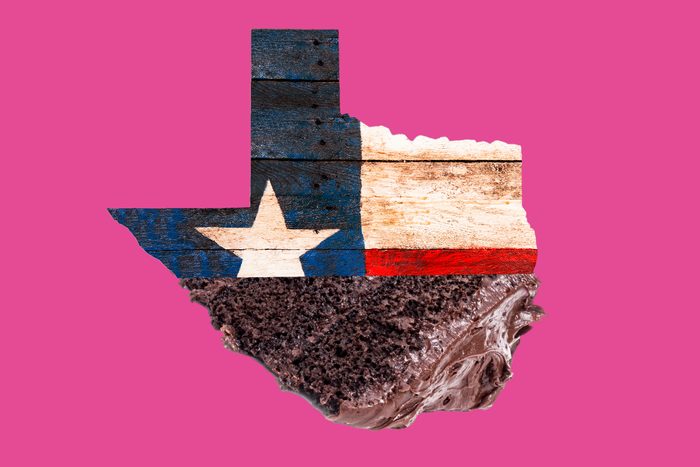
Fact: German chocolate cake was invented in Texas
The “German” part of German chocolate cake comes from an American man—not a European country. Specifically, it’s named after Sam German, who in 1852 created the formula for a mild dark baking chocolate bar for Baker’s Chocolate Company, which was subsequently named Baker’s German’s Sweet Chocolate. Fast-forward to June 13, 1957. The Dallas Morning Star published the recipe for the cake, invented and submitted by a reader identified as Mrs. George Clay, according to What’s Cooking America.

Fact: Marla Gibbs continued to work as a flight attendant for two years after being cast on a hit TV show
Prior to taking her place on the stoop of 227, Marla Gibbs played the housekeeper Florence on The Jeffersons (a spin-off of All in the Family). In a 2015 interview, Gibbs told the Washington Post that despite it appearing as though she had gotten her big break, she kept her job as a flight attendant for American Airlines for two more years—just to be safe.

Fact: The Philippines consists of 7,641 islands
The Philippines is an archipelago, which means it’s made up of a group of islands—7,641 islands, to be exact. That figure does not include the thousands of sandbars and other landforms that emerge during low tide.

Fact: A one-way trip on the Trans-Siberian Railway involves crossing 3,901 bridges
Not only is the Trans-Siberian Railway the longest railroad in Russia, but it’s also the longest one in the world. The journey takes seven days, during which time passengers pass through eight different time zones and cross 3,901 bridges.

Fact: The Golden Girls was supposed to have a different theme song
That’s right: Instead of Andrew Gold’s iconic “Thank You for Being a Friend,” the show’s producers wanted to use Bette Midler’s song “Friends,” according to Jim Colucci, author of the book Golden Girls Forever: An Unauthorized Look Behind the Lanai. But the rights to the Divine Miss M’s song were too expensive, and the rest is sitcom history.
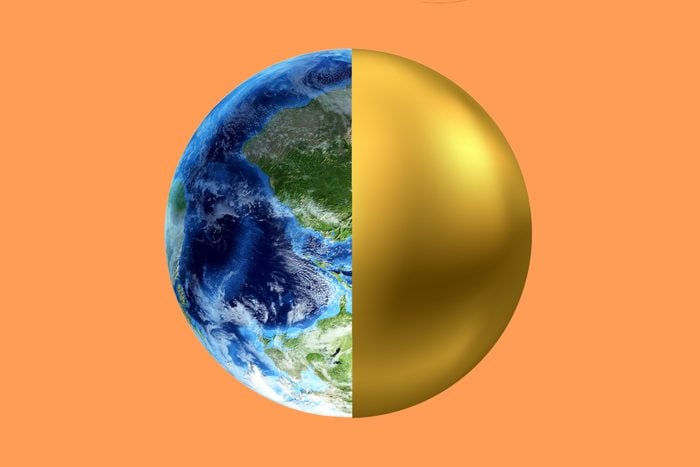
Fact: There’s enough gold inside Earth to coat the planet
Turns out, there’s quite a bit of gold on—or, really, in—our planet: 99 percent of the precious metal can be found in the Earth’s core, Discover Magazine reports. How much is there? Enough to coat the entire surface of the Earth in 1.5 feet of gold.
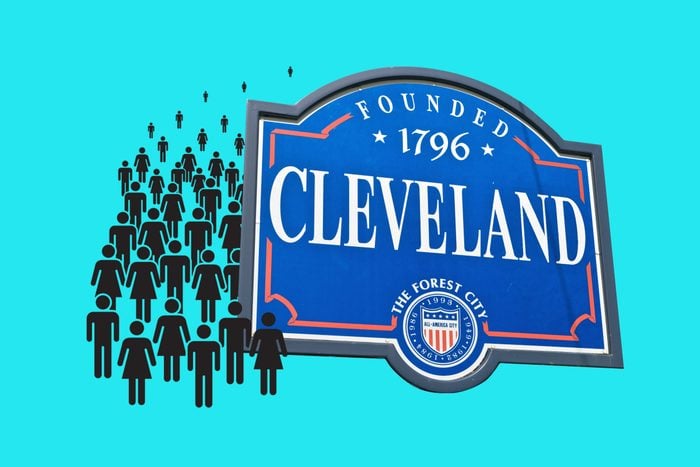
Fact: Cleveland was once the country’s fifth-largest city
Data from the 1920 U.S. census indicates that Cleveland, Ohio, was one of the most heavily populated cities in the country, behind only Detroit, Philadelphia, Chicago, and New York City. Today, these are the largest cities in the world.

Fact: Human beings can use only a small fraction of Earth’s water
In school, we were taught that most (specifically, 71 percent) of the planet’s surface is covered in water. While that’s true, humans can use only 0.007 percent of that water, according to National Geographic. That’s because only about 2.5 percent of Earth’s water is fresh water, and only 1 percent of that is accessible. The rest makes up glaciers and snowfields. By the way, have you ever wondering why we can “smell” snow?

Fact: Wally Amos is responsible for making more than just cookies famous
You may be familiar with Wally “Famous” Amos, thanks to his packaged chocolate chip cookies. But before he worked his magic on the sweet treats, he was in the business of making people famous, Biography reports. He discovered and signed folk duo Simon & Garfunkel and was a talent rep for acts like Diana Ross, Sam Cooke, and Marvin Gaye.
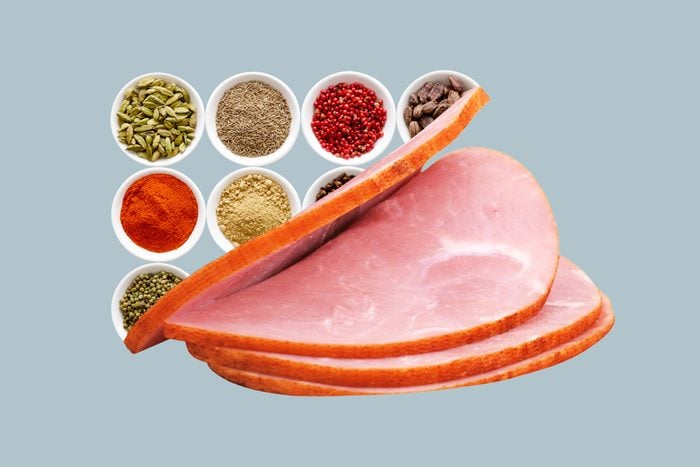
Fact: The brand name Spam is a combination of “spice” and “ham”
This is one of those interesting facts you probably thought you knew but actually didn’t. Contrary to American mythology, Spam is not an acronym for “Scientifically Processed Animal Matter” or “Shoulder of Pork and Ham,” Eater reports.

Fact: It takes a drop of water 90 days to travel the entire Mississippi River
Spanning 2,340 miles, the Mississippi River is the third-largest watershed in the world. That’s one long stretch of water. So long, in fact, that it takes one drop of water approximately 90 days to travel its entire length.
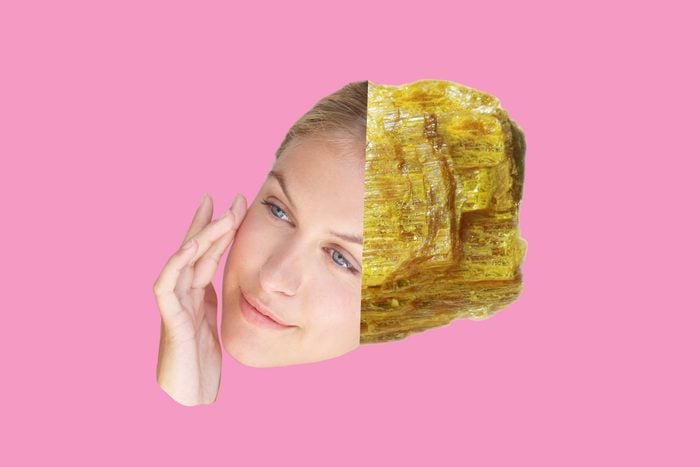
Fact: People once ate arsenic to improve their skin
You’ve probably heard about how a lot of the Victorians’ favorite cosmetics were riddled with arsenic, but it gets worse. There were also products on the market in the late 19th century, like Dr. James P. Campbell’s Safe Arsenic Complexion Wafers, that were meant to be eaten. They claimed to get rid of freckles, blackheads, and other “facial disfigurements.” Admit it: That’s one of the most interesting facts you’ve learned in a while.
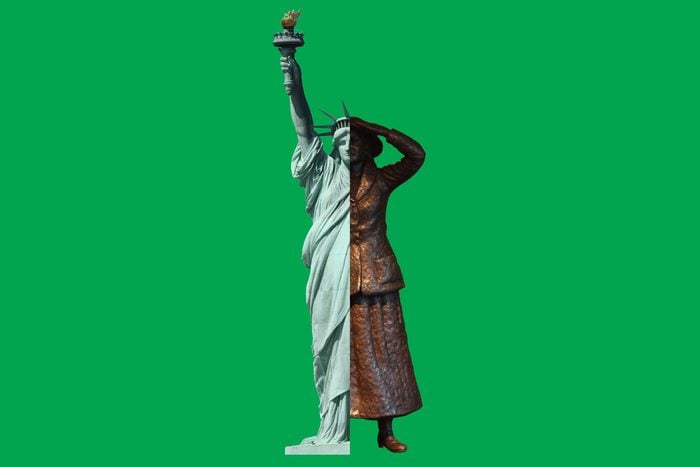
Fact: The first person processed at Ellis Island was a 15-year-old girl from Ireland
On January 1, 1892, Annie Moore was the first passenger to disembark at Ellis Island on its opening day. She had traveled to the United States with her two younger brothers aboard the SS Nevada after departing from Queenstown, Ireland (now known as Cobh). Another amazing fact? The busiest day at Ellis Island was April 17, 1907.
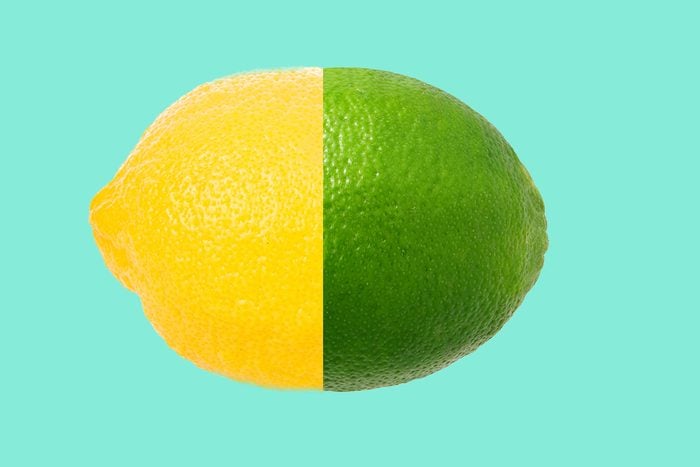
Fact: Lemons float, but limes sink
Because limes are denser than lemons, they drop to the bottom of a glass, while lemons float at the top. Out of all these random fun facts, this one’s been in front of our faces (or rather, in our glasses) this whole time! Check out these other things to wonder about that you likely never thought of before.

Fact: Professional athletes used to perform in vaudeville during the off-season
Before today’s big-league salaries, professional baseball and football players often had to take on jobs during the off-season, The Atlantic reports. Some of them took advantage of their name recognition and hit the vaudeville circuits, doing everything from comedy routines to reciting poems. Babe Ruth even sang—if you could call it that. Frankly, many of the athletes had no business being on stage, but it’s not like it was against the rules.

Fact: The first time the word “period” was used on TV in reference to menstruation was 1985
It came via a line in a Tampax commercial: “Feeling cleaner is more comfortable. It can actually change the way you feel about your period.” And the actor who made pop culture history was Courtney Cox of Friends fame.
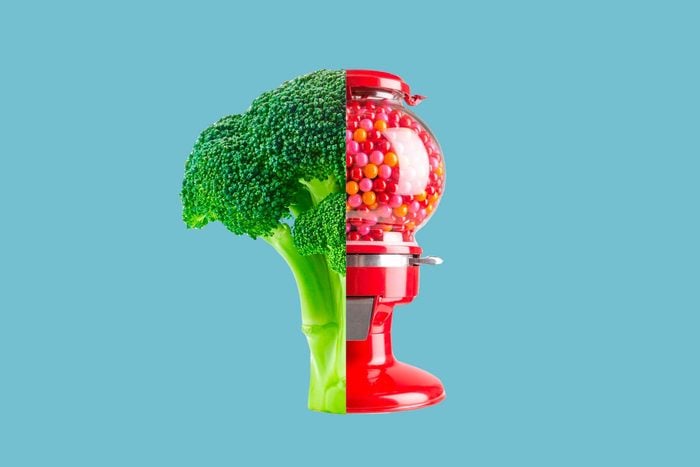
Fact: McDonald’s once made bubblegum-flavored broccoli
This crazy McDonald’s fact will have your taste buds crawling. Unsurprisingly, the attempt to get kids to eat healthier didn’t go over well with the child testers, who were “confused by the taste.”
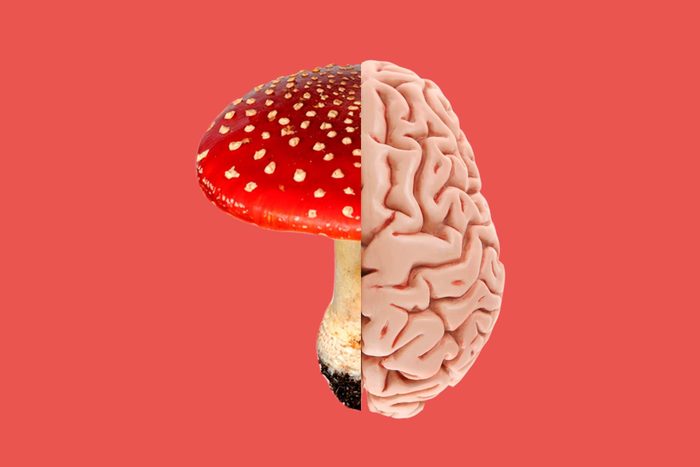
Fact: Some fungi create zombies, then control their minds
The tropical fungus Ophiocordyceps infects ants’ central nervous systems. Once it has been in an insect’s body for nine days, it has complete control over the host’s movements. According to National Geographic, it forces the ant to climb trees, then convulse and fall into the cool, moist soil below, where fungi thrive. Once there, the fungus waits until exactly solar noon to force the ant to bite a leaf and wait for death.
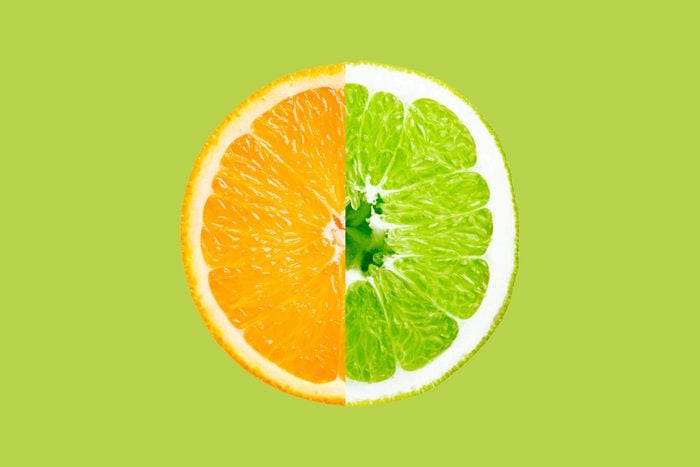
Fact: The first oranges weren’t orange
The original oranges from Southeast Asia were a tangerine-pomelo hybrid, and they were actually green. In fact, oranges in warmer regions, such as Vietnam and Thailand, still stay green through maturity. Speaking of which, ever wonder which “orange” came first: the color or the fruit? We found out!
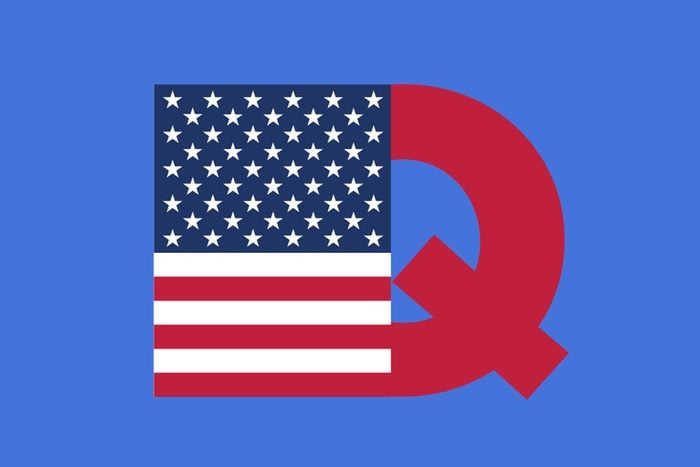
Fact: There’s only one letter that doesn’t appear in any U.S. state name
Can you guess the answer to this random fun fact? You’ll find a Z (Arizona), a J (New Jersey), and even two X’s (New Mexico and Texas)—but not a single Q.
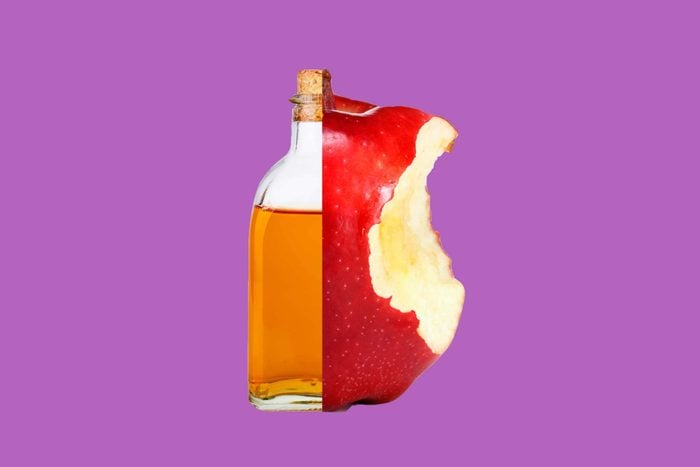
Fact: Johnny Appleseed’s fruits weren’t for eating
Yes, there was a real John Chapman who planted thousands of apple trees on U.S. soil. But the apples on those trees were much more bitter than the ones you’d find in the supermarket today. “Johnny Appleseed” didn’t expect his fruits to be eaten whole but rather made into hard apple cider.
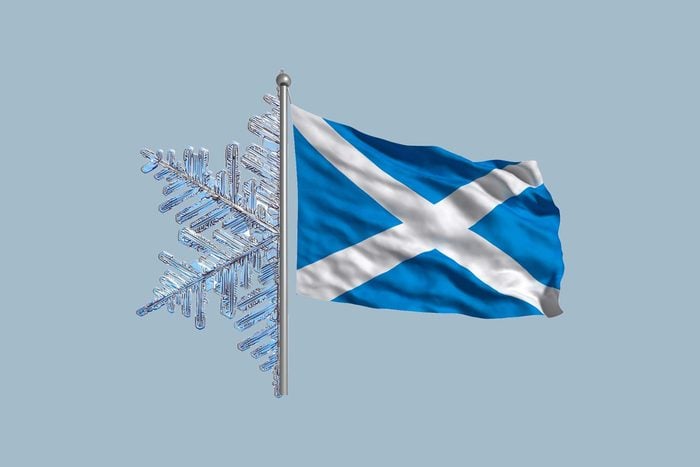
Fact: Scotland has 421 words for snow
Yes, 421! Some examples: sneesl (to start raining or snowing); feefle (to swirl); and flinkdrinkin (a light snow).

Fact: Samsung tests phone durability with a butt-shaped robot
People stash their phones in their back pockets all the time, which is why Samsung created a robot shaped like a butt to “sit” on their phones to make sure they can take the pressure. Believe it or not, the robot even wears jeans.

Fact: The Windy City nickname has nothing to do with Chicago’s weather
If you live in Chicago, you might already know this random fact, but we’re betting most other people don’t. Chicago’s nickname was coined by 19th-century journalists who were referring to the fact that its residents were “windbags” and “full of hot air.”
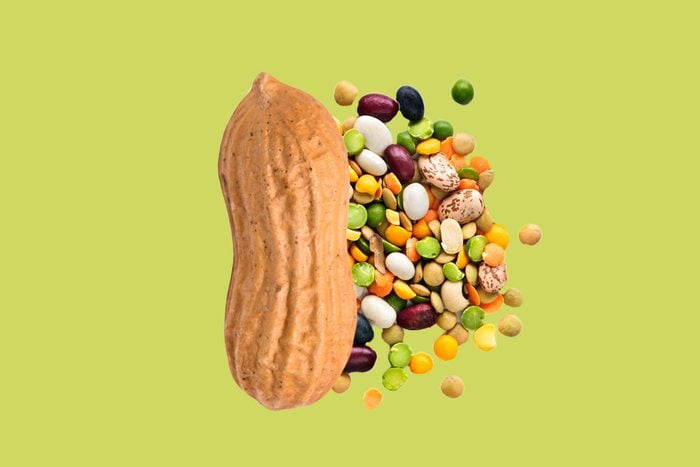
Fact: Peanuts aren’t technically nuts
They’re legumes. According to Merriam-Webster, a nut is only a nut if it’s “a hard-shelled dry fruit or seed with a separable rind or shell and interior kernel.” That means walnuts, almonds, cashews, and pistachios aren’t nuts either. They’re seeds.
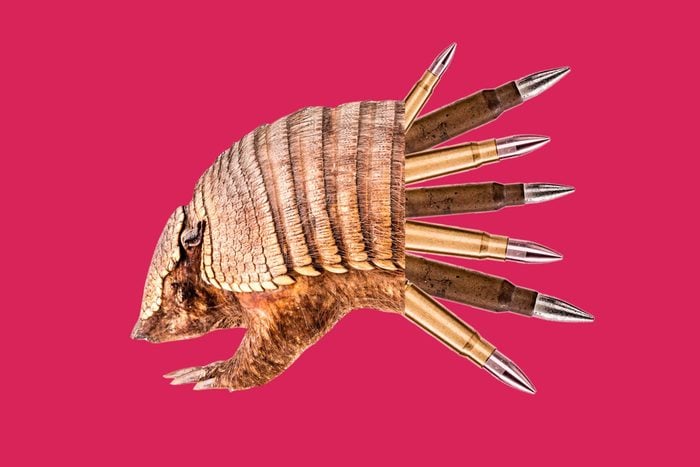
Fact: Armadillo shells are bulletproof
In fact, one Texas man was hospitalized when a bullet he shot at an armadillo ricocheted off the animal and hit him in the jaw. That’s a totally true animal tidbit. These animal “facts,” however, are false.

Fact: The longest English word is 189,819 letters long
We won’t spell it out here, but the full name for the protein nicknamed titin would take three and a half hours to say out loud. While this is, by far, the longest word in English, the longest word in the Oxford English Dictionary has 45 letters, and the longest made-up word has just 28. Just a few more interesting facts for your next cocktail party!
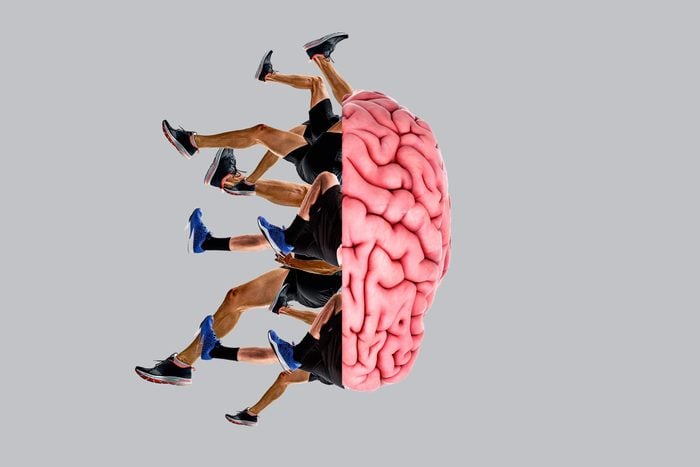
Fact: “Running amok” is a medically recognized mental condition
Considered a culturally bound syndrome, a person “running amok” in Malaysia starts with a period of brooding and then commits a sudden, frenzied mass attack.
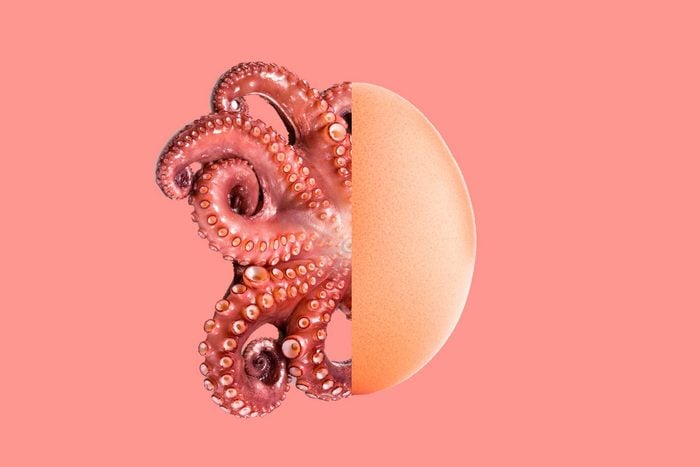
Fact: Some octopus species lay 56,000 eggs at a time
On average, a giant Pacific octopus will lay 56,000 eggs at the end of a pregnancy, over the course of about a month, NPR reports. At first, these new babies float through the surrounding water unattached to one another or their mother. But then the mother gathers each egg—which is about the size of a grain of rice—and weaves them into braids, allowing her to keep an eye on everyone at the same time.
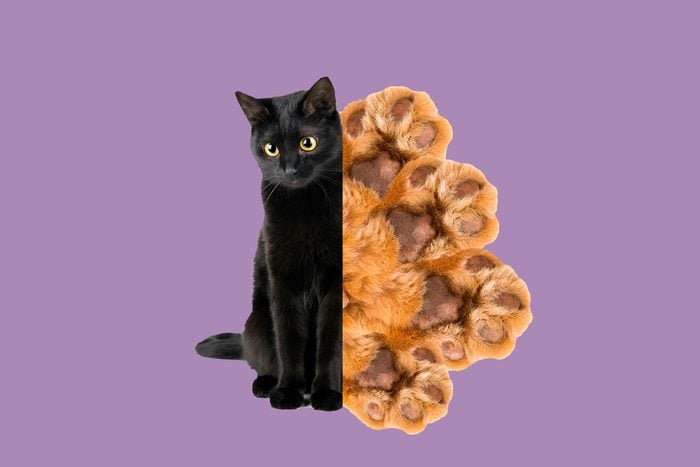
Fact: Cats have fewer toes on their back paws
Like most four-legged mammals, cats have five toes on the front, but their back paws only have four toes. Scientists think the four-toed back paws might help them run faster. Here are more purr-fectly fascinating facts about cats.

Fact: Kleenex tissues were originally intended for gas masks
When there was a cotton shortage during World War I, Kimberly-Clark developed a thin, flat cotton substitute that the army tried to use as a filter in gas masks. The war ended before scientists perfected the material, so the company redeveloped it to be smoother and softer, then marketed Kleenex as facial tissue instead.
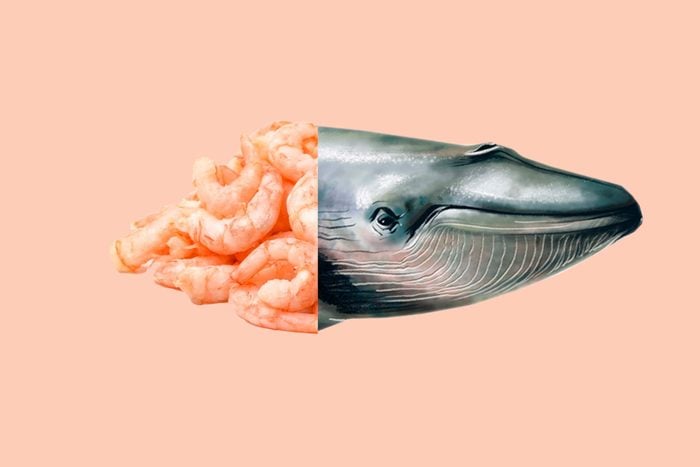
Fact: Blue whales eat half a million calories in one mouthful
Just try to wrap your brain around the second part of this animal fact: Those 457,000 calories are more than 240 times the energy the whale uses to scoop those krill into its mouth.
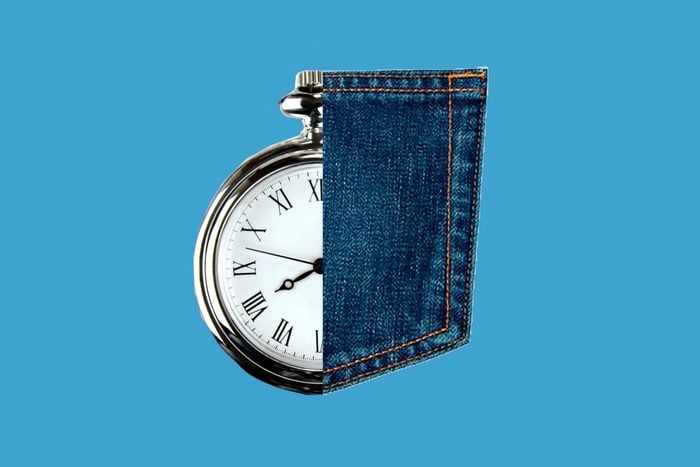
Fact: That tiny pocket in jeans was designed to store pocket watches
The original jeans had only four pockets: that tiny pocket, plus two more on the front and just one in the back.
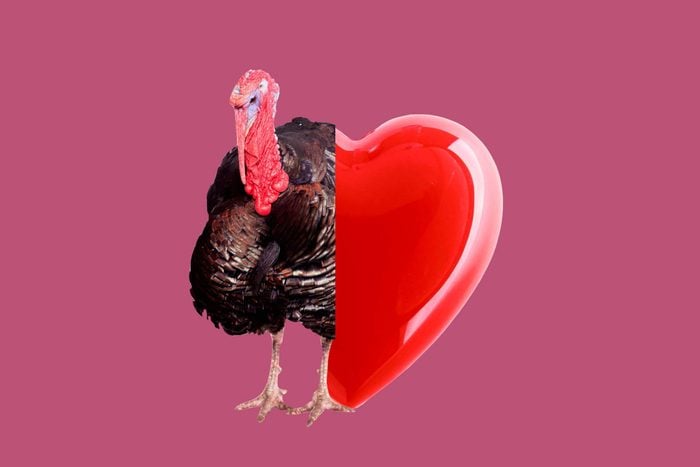
Fact: Turkeys can blush
When turkeys are scared or excited—like when the males see a female they’re interested in—the pale skin on their head and neck turns bright red, blue, or white. The flap of skin over their beaks, called a snood, also reddens. By the way, this is why the president pardons a turkey every Thanksgiving.
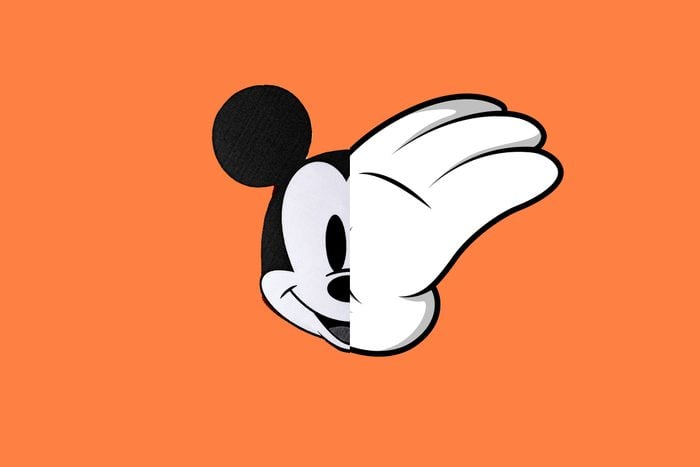
Fact: Most Disney characters wear gloves to keep animation simple
Walt Disney might have been the first to put gloves on his characters, as seen in 1929’s The Opry House, starring Mickey Mouse. In addition to being easier to animate, there’s another reason for the gloves: “We didn’t want him to have mouse hands because he was supposed to be more human,” Disney told his biographer in 1957.

Fact: The man with the world’s deepest voice can make sounds humans can’t hear
The man, Tim Storms, can’t even hear the note, which is eight octaves below the lowest G on a piano—but elephants can.
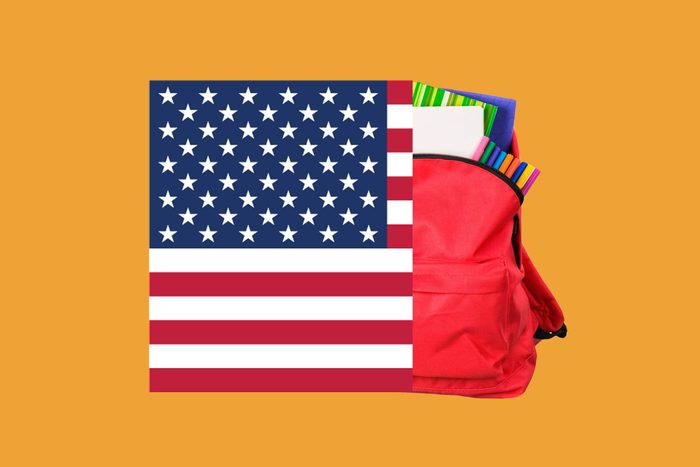
Fact: The current American flag was designed by a high school student
It started as a school project for Bob Heft’s junior-year history class in 1958, and it only earned a B-minus. His design had 50 stars, even though Alaska and Hawaii weren’t states yet; Heft figured the two would earn statehood soon and showed the government his design. After President Dwight D. Eisenhower called to say the design was approved, Heft’s teacher changed his grade to an A.
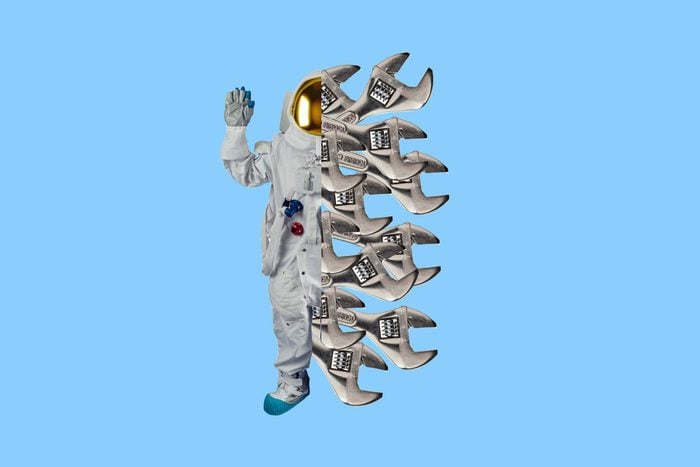
Fact: Thanks to 3D printing, NASA can basically email tools to astronauts
Getting new equipment to the Space Station used to take months or years, but the new technology means the tools are ready within hours.
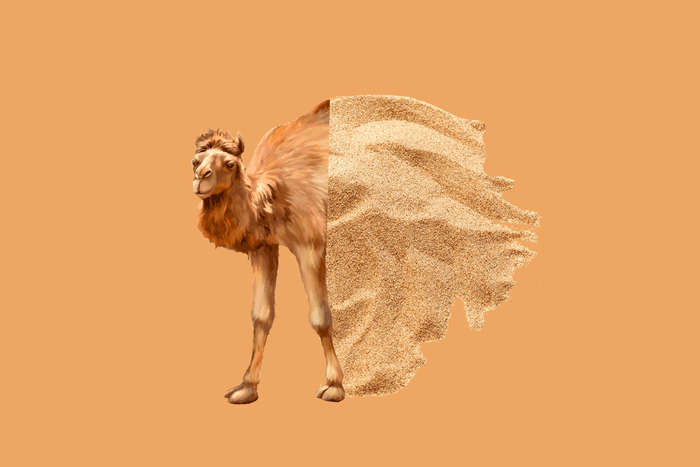
Fact: Only a quarter of the Sahara Desert is sandy
Most of it is covered in gravel, though it also contains mountains and oases. And here’s another geography fact that everyone gets wrong: It isn’t the world’s largest desert. Antarctica is.














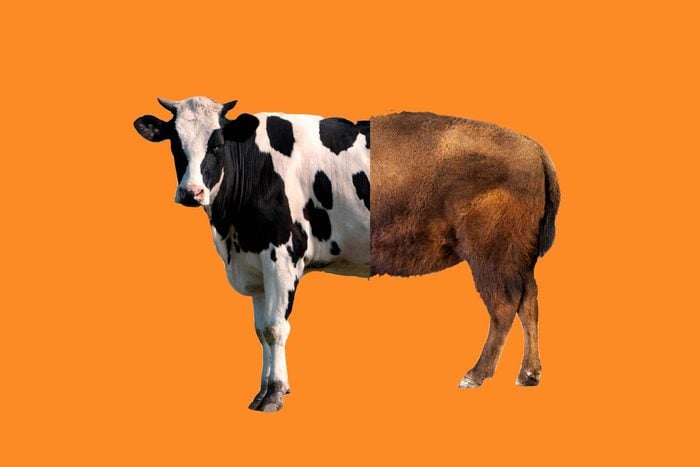

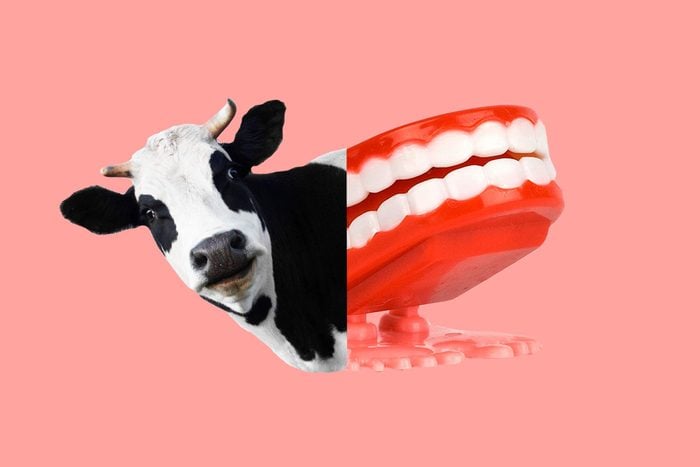
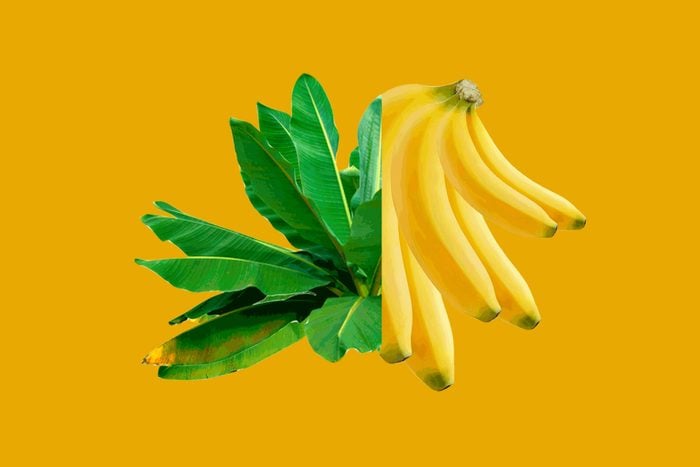
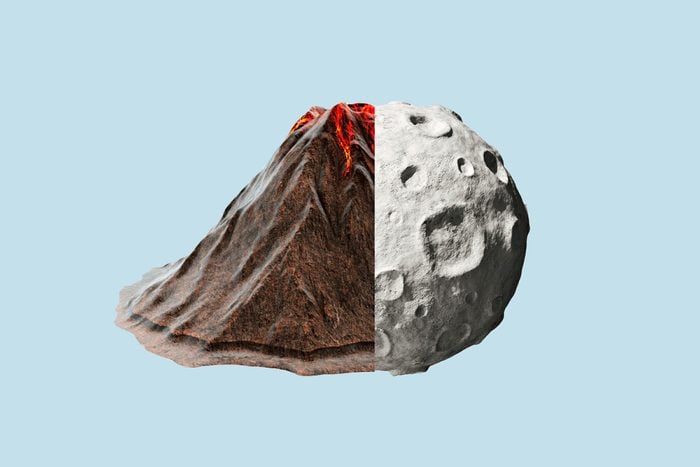


No comments:
Post a Comment